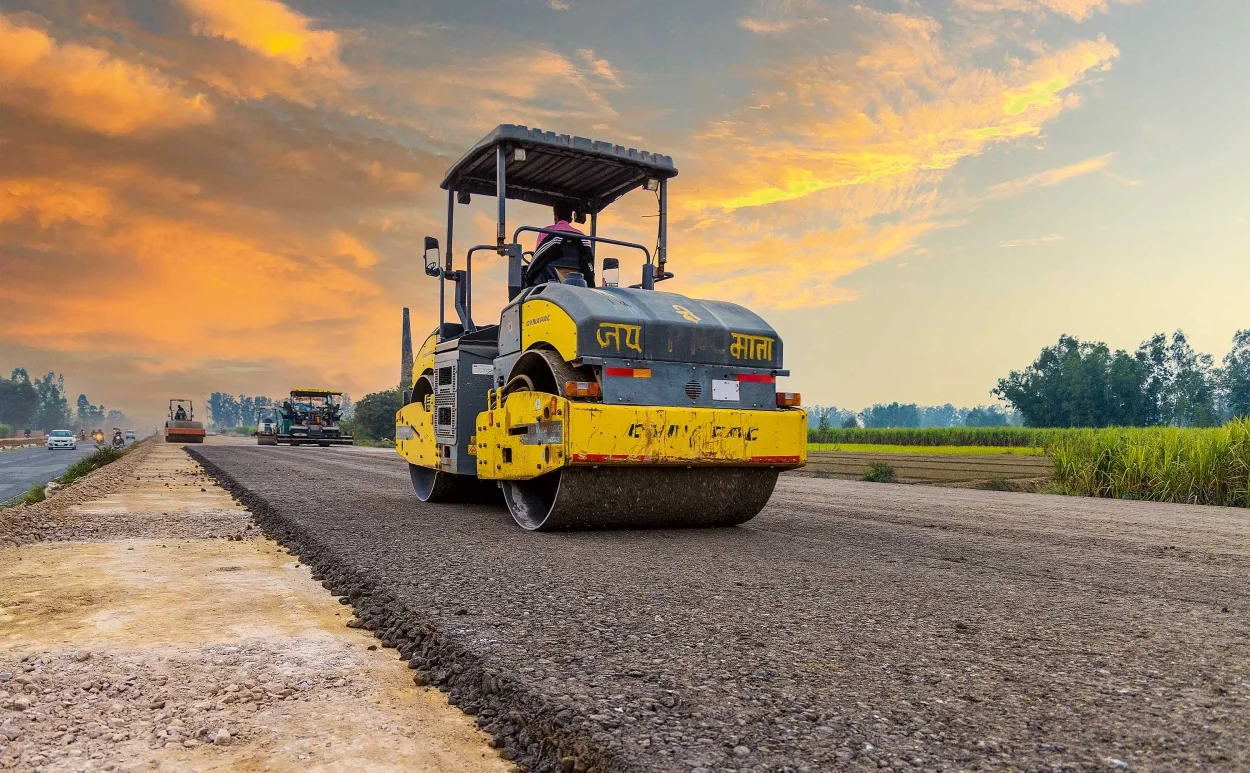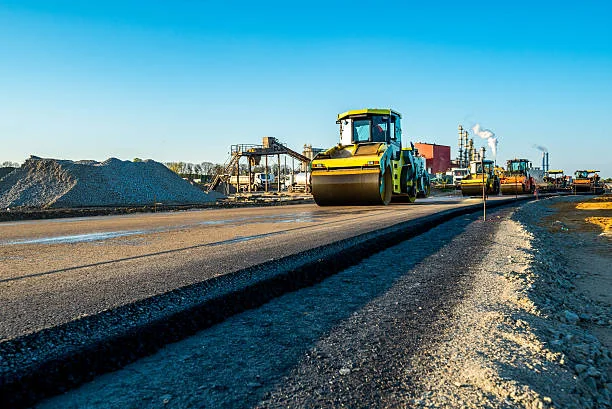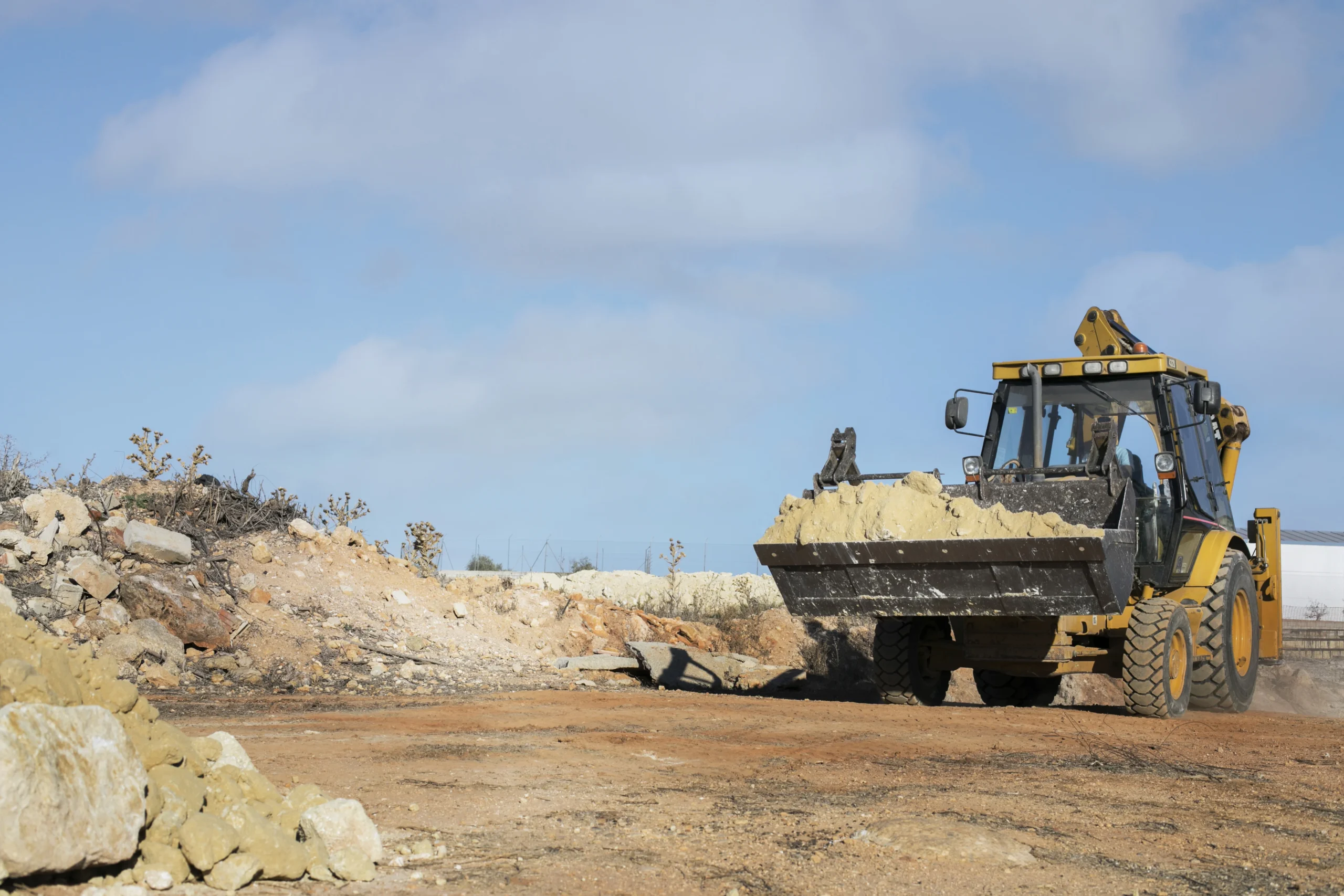Introduction:
Road construction is a critical aspect of infrastructure development in India. However, the construction industry faces several challenges that hinder efficient and timely completion of projects. In this blog, we will explore the top road construction challenges in India and propose effective solutions to overcome them. By embracing innovative approaches, adopting technology, and improving project management practices, India can revolutionize its road construction industry.

Land Acquisition and Right-of-Way:
One of the most significant challenges in road construction is acquiring land and securing the necessary right-of-way. India’s complex land acquisition procedures, legal complications, and community resistance often lead to delays and cost overruns. To address this challenge, streamlining the land acquisition process, ensuring transparency, and engaging in meaningful consultations with local communities can help expedite the project approvals and mitigate disputes.
Funding and Financial Constraints:
Insufficient funding and financial constraints pose a major challenge for road construction projects in India. The availability of funds affects project planning, design, and timely execution. Exploring alternative financing options, such as public-private partnerships (PPPs), infrastructure bonds, and foreign investments, can provide the much-needed capital for road construction. Additionally, optimizing budget allocation, cost estimation, and financial management practices can help maximize the utilization of available resources.

Technological Advancements and Adoption:
The road construction industry in India can benefit greatly from embracing new technologies and construction methods. Low mechanization levels, outdated practices, and a lack of skilled labor contribute to inefficiencies and quality issues. Integrating advanced technologies like Building Information Modeling (BIM), 3D printing, drones, and automated construction equipment can significantly improve project efficiency, reduce costs, and enhance construction quality.
Environmental and Sustainability Considerations:
Sustainable road construction is crucial for minimizing the environmental impact and ensuring long-term infrastructure resilience. India faces challenges such as deforestation, soil erosion, and ecosystem disruption during road construction. By implementing sustainable practices like using recycled materials, incorporating green infrastructure, adopting rainwater harvesting systems, and mitigating pollution, the industry can reduce its carbon footprint and promote environmental stewardship.

Project Management and Execution:
Efficient project management and execution are vital for timely completion of road construction projects. Inadequate planning, poor coordination among stakeholders, and delays in decision-making lead to project delays and cost escalations. Employing robust project management methodologies, establishing effective communication channels, and adopting modern project management software can streamline processes, enhance collaboration, and ensure smooth project execution.
Quality Control and Maintenance:
Maintaining high-quality standards throughout the lifespan of a road is essential for its longevity and durability. Inadequate quality control measures, substandard materials, and poor maintenance practices undermine the integrity of road infrastructure. Implementing stringent quality control protocols, conducting regular inspections, and investing in preventive maintenance can extend the lifespan of roads, reduce repair costs, and enhance user safety.
Conclusion:
The road construction industry in India faces various challenges that impede infrastructure development. By addressing land acquisition issues, exploring innovative financing options, embracing technology, prioritizing sustainability, improving project management practices, and enhancing quality control and maintenance, India can overcome these challenges and transform its road construction sector. Embracing these solutions will pave the way for efficient, resilient, and sustainable road infrastructure, promoting economic growth and improving connectivity throughout the country.

